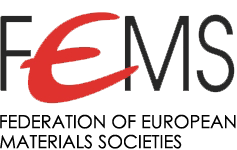Past Board Members

Jana Horníková
Gian Luca Garagnani, is full professor in Metallurgy at the Department of Engineering, University of Ferrara (Italy). Presently, he is the head of the “Aldo Daccò” Corrosion and Metallurgy Research Centre of the University of Ferrara.
Graduated in Industrial Chemistry at the University of Bologna, from 1983 to 1997 as been Researcher in metallurgy at the Faculty of Industrial Chemistry. From 1998 to 2004 was Associate Professor and from 2005 is Full Professor in Metallurgy at the Department of Engineering, Ferrara University.
In the academic years 2010/11 – 2014/15 he has been the coordinator of the Council of Study courses in Mechanical Engineering. From the academic year 2014/15 is the head of the Joint Commission of the Engineering Departments of Ferrara University.
He has been member of the board of AIM (Italian Association of Metallurgy) in the period 2010-2014. From 2012 is the president of AIM Scientific Committee “History of Metallurgy” study centre and member of AIM Scientific Committee “Light Metals” study centre. From 2009 to 2016 has been member of the scientific committee of “La Metallurgia Italiana – The International Journal of the Italian Association for Metallurgy”.
The main research activities, leading to the publishing of more than 160 papers on national and international journals, regarded the following fields: 1) Study of the effects of metallurgical processes, thermal and mechanical treatments on the microstructural and mechanical properties of metallic alloys (high strength low alloy steels, duplex stainless steels, shape memory alloys, aluminium matrix composites, cast irons, etc.) 2) Study of advanced casting and joining processes of aluminium alloys and metal matrix composites. 3) Tribological and microstructural characterization of innovative coatings and surface treatments. 4) Analytical and microstructural characterization of metallic artefacts of archaeological and historical interest.
